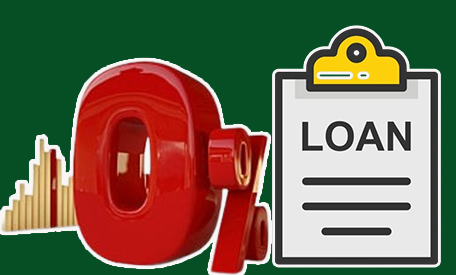What are high-interest loans? High-interest loans are important financial products or tools that give borrowers instant access to funds; however, this comes with a significant cost. Moreover, this loan type is quite common among people who are in dire need of quick funds for large purchases, emergencies, or debt consolidation.

Moreover, if an individual does not have strong financial standing or a good credit score to get lower rates, they tend to consider high-interest loans. In the meantime, it is essential that you understand the nature of this loan type, how it works, and the risk associated with taking out one. This will help you effectively manage your debts and make the right financial decisions.
What Are High-Interest Loans?
High-interest loans are types of loans that come with an interest rate that is higher than the average, unlike other forms of credit. Furthermore, this loan type comes in different forms such as credit cards, payday loans, title loans, and personal loans. Meanwhile, they are designed for borrowers who need fast cash, who are not able to meet the requirements of a traditional low-interest loan, or poor credit scores.
How Do They Work?
As mentioned previously, the main objective of a high-interest loan is to give borrowers access to instant or immediate cash that will be paid back over a given period with additional or extra interest. Generally, this process involves applying quickly with the required documents. However, the approval is usually based on repayment abilities and not credit history.
Additionally, the fund disbursement will take place after a few minutes of approval. Meanwhile, the interest for this loan type is expressed as an APR and is calculated on the principal. Additional fees like prepayment, origination, or late fees might be applied.
Risks of High-Interest Loans
Although taking out a high-interest loan seems to be the only available option for borrowers with poor credit scores or need instant cash, here are some of the risks involved that you have to consider and know:
- Cycle of borrowing and repaying.
- Debt accumulation.
- Low credit impact.
- Financial strain.
- Insufficient financial relief.
- High costs.
- Restricted regulation.
- Emotional stress.
- Exposure to predatory practices.
All of these factors are associated with considering a high-interest loan. However, if you can handle it, then you can decide to take out one.
How Much Interest Is Too Much?
One of the best ways to find out whether a loan is too expensive or the interest rate is too much is by looking at the monthly payment. According to the Pew Charitable Trusts, small-loan payments should not be more than 5% of your income monthly. So, sum the loan payments with your monthly budget and see what result comes out. Taking the loan might be risky if seems like a tight spot.
Another thing you need to consider is the whole interest costs. You can make use of a loan calculator to find out how much you will have to pay for interest alone. Some high-interest loan’s interest can be more than 50% of the initial amount collected.
What To Look for in a High-Interest Loan
It is important to consider and remember these factors if you want to reduce risks when considering taking out a high-interest loan:
- Repayment terms.
- Interest rate.
- Collateral requirements.
- Additional fees.
- APR disclose.
- Transparency.
- Reputation of the lender.
- Loan amount.
- Borrower’s protection.
- Customer service.
- Flexibility.
- Credit requirements.
- Payment reporting.
You can also find out if the lender or loan company puts the payment towards the principal.
How To Pay Off a High-Interest Loan Quickly
Offsetting your high-interest loan fast is an effective way to mitigate financial strain and reduce the whole cost. If you would like to do this, here are some helpful strategies:
- Develop a budget.
- Consider making extra payments.
- Use bonuses, tax refunds, or other windfalls to speed up the payment.
- Pay full attention to paying up.
- Reach out to your lender to negotiate the terms and lower rates.
- Refinance.
- Increase your monthly income.
- Set up an automatic payment method.
- Stop making unnecessary expenses or spending.
- Debt consolidation.
With these tips, you will be able to pay up your high-interest loan faster and prevent further interest and financial strain.
High-Interest Loan Alternatives
If you have considered the risks involved with taking out a high-interest loan and it is not suitable for you, here are a few alternatives you can consider that might meet your needs financially:
- Peer-to-peer loans.
- Government grants and assistance programs.
- Home equity loans.
- Payday alternative loans.
- Family or friends.
- Crowdfunding.
- Personal loans.
- Credit counseling.
- Side hustles.
- Secured loan.
- Payment plans.
- Family loans.
- Local charities or nonprofits.
These will help you secure more funds to cover and pay up the high-interest loan with ease.
FAQs
Can high-interest loans affect my credit score?
Yes, taking a high-interest loan can affect your credit score. However, if you work on improving your credit score and making timely payments, you can prevent late or missed payments.
How can I improve my chances of getting a lower interest rate on a loan?
If you would like to improve or increase your chances of getting a low-interest loan, start by reducing credit utilization, improving your credit score, making timely payments, and offsetting existing debts.

